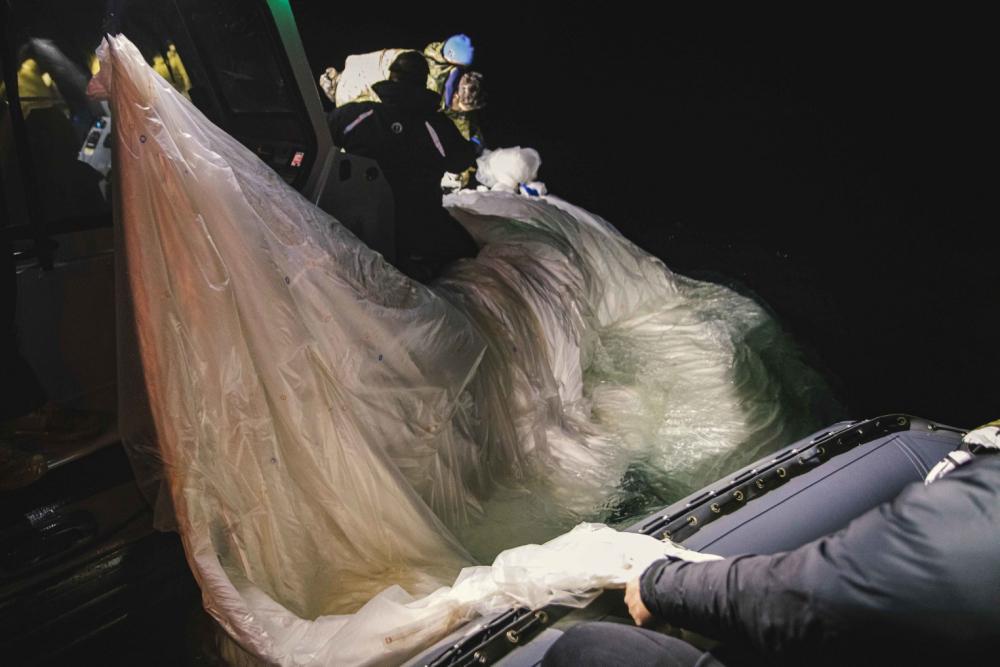Most of the debris from the Chinese spy balloon shot down by the U.S. military last week is still lying in the ocean.
The FBI has so far recovered very limited physical evidence from the Chinese surveillance balloon shot down off the coast of South Carolina on Feb. 4, and senior FBI officials said that the bureau had not yet retrieved enough information from the debris to assess the balloon’s capabilities.




